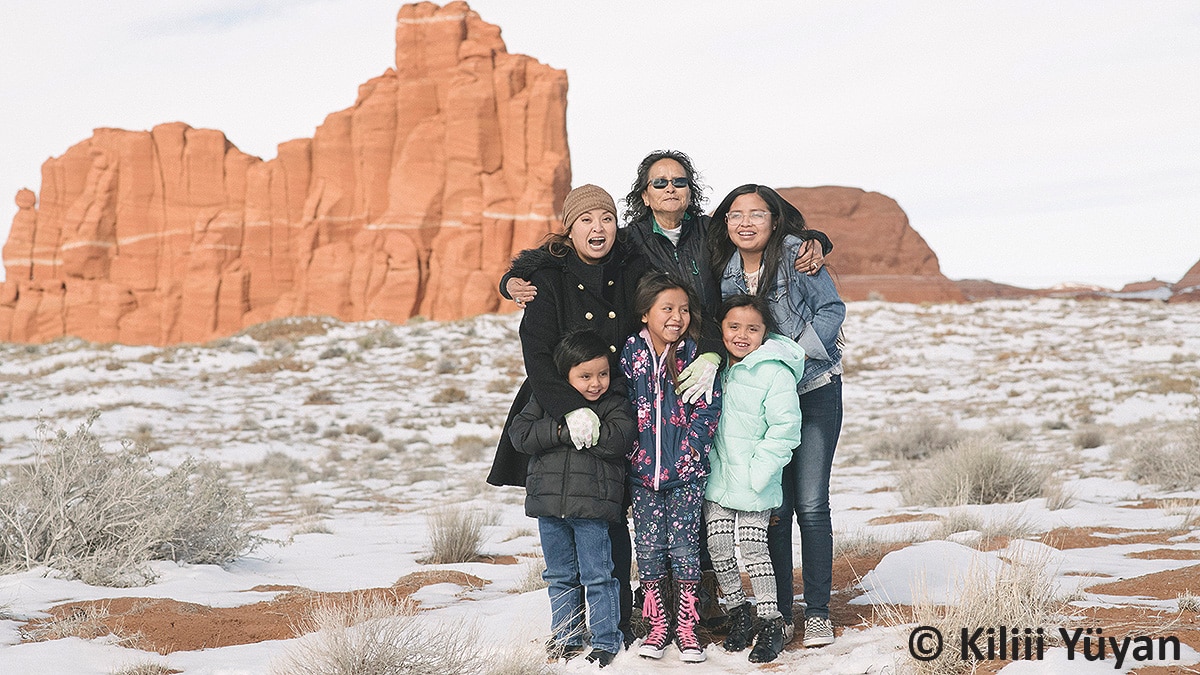Key points
- CDC supports the health and wellness of American Indian and Alaska Native (AI/AN) communities through its Healthy Tribes Program.
- Recognizing the innate strengths of Native communities and culture, Healthy Tribes advances an approach to chronic disease prevention and health promotion that is centered around AI/AN culture, language, and traditions.
- For over a decade, Healthy Tribes has partnered with tribal communities to deliver culturally responsive, strength-based, and community-led strategies for health promotion and disease prevention.

Who we are
Recognizing that American Indian and AI/AN communities have innate strengths and resilience rooted in culture and traditional ways of life, CDC's Healthy Tribes Program partners with these communities to deliver culturally responsive, strength-based, and community-led strategies to support and improve health and wellness.
Healthy Tribes works across three programmatic areas to strengthen cultural connections and infrastructure for improved health and wellness:
- Delivering holistic, culturally responsive, and community driven chronic disease prevention interventions.
- Supporting cultural practices for wellness.
- Strengthening tribal public health infrastructure and capacity.
Across all of its work, CDC’s Healthy Tribes seeks to:
- Respect and promote Indigenous knowledge, traditions, and cultural practices for health and healing.
- Build and expand partnerships and programs in AI/AN communities.
- Address the underlying, root causes that influence health and contribute to health disparities in AI/AN communities.

Why it matters
AI/AN populations face disproportionately high rates of many chronic diseases, with a shorter life expectancy than other racial and ethnic groups in the United States.
The roots of this problem go back to U.S. colonialism and policies that severely disrupted tribal culture and traditional ways of life. Upheavals from the loss of land, relocation, assimilation, and tribal termination have:
- Led to historical trauma.
- Limited access to resources and opportunities for health and well-being.
- Contributed to higher rates of risk behaviors and chronic diseases.
There is an urgent need to address factors that contribute to poor health and chronic disease in AI/AN communities; interventions must be centered on the strengths of Indigenous culture and traditions.
Our approach
CDC’s Healthy Tribes Program takes a culture-first approach, rooted in cultural tradition and ways of life, to improve health and wellness in AI/AN communities from a holistic perspective.
Culture first
Healthy Tribes’ public health programming:
- Centers around AI/AN cultures, languages, practices, and traditions.
- Promotes cultural connectedness that is essential to health and wellness.
- Prioritizes culture as an important protective factor that builds resilience and promotes holistic health.
Holistic
Healthy Tribes approaches health and wellness from a holistic perspective, viewing health in the context of physical, mental, emotional and spiritual health, which includes social and cultural connectedness.
What we do
Healthy Tribes provides comprehensive leadership and support of indigenous perspectives by:
- Providing culturally responsive technical assistance, training, and grants support.
- Working with tribal partners to serve as coordinating centers for our programs.
- Supporting community-chosen priorities and interventions.
- Supporting sustainability through programming that addresses underlying health factors and respects indigenous ways of knowing.
- Co-creating program strategies and approaches with tribal partners.
- Incorporating Indigenous evaluation approaches.
Our funded efforts
CDC’s Healthy Tribes Program provides funding to American Indian tribes, Alaska Native villages, tribal organizations, Urban Indian Organizations, and Tribal Epidemiology Centers (TECs) through three key cooperative agreements:
- Good Health and Wellness in Indian Country (GHWIC) delivers holistic, culturally responsive, community-driven interventions for preventing, managing, and controlling chronic diseases such as type 2 diabetes and high blood pressure in AI/AN communities.
- Tribal Practices for Wellness in Indian Country (TPWIC) supports traditional and cultural practice and teachings that build resilience and connections to community, family, and culture to reduce risk factors for chronic disease, promote wellness, and improve physical, mental, emotional, and spiritual health in AI/AN communities.
- Tribal Epidemiology Centers Public Health Infrastructure (TECPHI) builds public health capacity and infrastructure of Tribal Epidemiology Centers and the tribes/villages/Urban Indian Organizations they serve to deliver essential public health services.
